6 Eye-opening Reasons To Stock Up On Garden Seeds NOW!
If you’re into preparedness, then you know the importance of stocking up on a variety of garden seeds. But if you’re like many people, you may be wondering why now is the time to stock up on them.
Garden seeds are a great way for you to become self-sufficient. We can stock up on everything we can buy from a store, but eventually, many of the items we want and need will run out, particularly during an emergency situation. That means we should be able to grow some of our own food and have a survival plan without the various stores we have relied on for years. One way to do that is to stock up on garden seeds.
How I store my garden seeds:
Plastic Photo Container and Label Maker
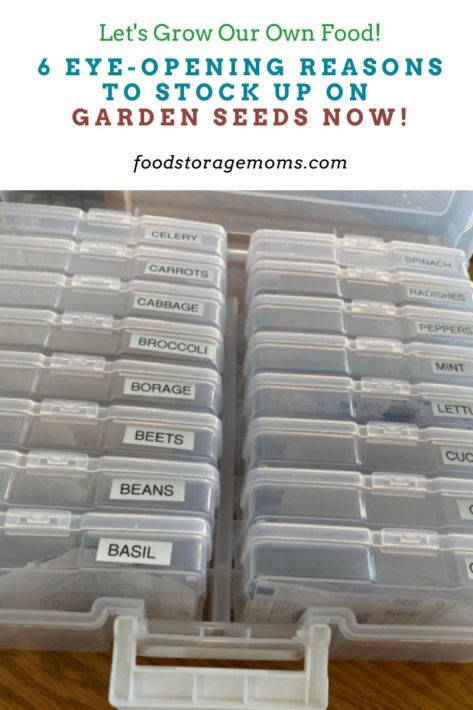
6 Reasons to Stock Garden Seeds
If you are keeping up on current events, and noticing prices in the grocery store, you know it’s time to start stocking garden seeds, if you haven’t already. Here are 6 reasons to stock up on garden seeds NOW!
Inflation
Anyone who’s been paying attention to the news knows that inflation is on the rise. And that’s not good news for gardeners. Seeds are one of the garden items that are most affected by inflation. As the cost of living goes up, so does the cost of seeds. That’s why it’s important to stock up on garden seeds now before prices get too high for you to afford what you want.
The good news is that there are plenty of places to find garden seeds at reasonable prices right now. Seed companies are selling their products online and in stores, so it’s easy to find a great deal. But don’t wait too long to buy garden seeds. Inflation is only going to continue to go up, so it’s best to stock up sooner rather than later. After all, a garden is a great way to save money on food costs. Remember, it isn’t too late to start or add to your garden area, and seeds are a vital component of a successful garden.
Food Price Increases
If you’re concerned about the rising cost of food, you’re not alone. Food price inflation is a real problem that’s only getting worse. One way to combat rising food prices is to grow your own food. And the best way to do that is to start with garden seeds.
Garden seeds are relatively cheap, and they can produce an abundance of fresh fruits, vegetables, and herbs. Plus, growing your own food is a great way to know exactly what’s in the food you eat, and where it came from. No more worrying about pesticide residue or GMOs!
Food Shortages
As we all know, the past year has been a difficult one. Food shortages have become a reality in many parts of the world, and there is no telling when or if they will end.
In recent months, there have been reports of empty shelves in supermarkets across the country. While it’s impossible to know for sure what the future holds, it makes sense to be prepared. For gardeners, that means stocking up on garden seeds. With a well-stocked pantry of garden seeds, you’ll be able to grow your own food, particularly if grocery stores are not an option for things you need for meal preparations.
Save Money On Groceries
As the cost of living continues to rise, so does the cost of groceries. If you’re looking for ways to save money, stocking up on garden seeds is a great option. With a little planning and effort, you can grow much of your own food and save money on your grocery bill.
Again, growing your own food is a great way to know exactly what’s in your food and where it came from. No more worrying about pesticide residue or GMOs!
Enjoy Fresh Produce
One of the best things about gardening is being able to enjoy fresh produce. There’s nothing quite like eating a tomato that you’ve just picked from your own garden.
With garden seeds, you can grow a wide variety of fruits, vegetables, and herbs. So whether you’re a fan of tomatoes, cucumbers, or peppers, you can grow your own with a little effort. Last summer we had the chance to plant a bunch of extra tomato plants. We were concerned about a few of our neighbors and how they were getting along food-wise. Thank goodness, we had a bumper crop of tomatoes and other veggies that made it possible to deliver some of your extra to those around us.
Support Sustainable Agriculture
If you care about the environment, then you know the importance of supporting sustainable agriculture. By growing your own food, you can do your part to reduce your carbon footprint.
Gardening is a great way to live a more sustainable lifestyle, and it all starts with garden seeds. So if you’re looking for a way to be more eco-friendly, start stocking up on garden seeds.
How Do I Buy Seeds?
Now that you know the importance of stocking up on garden seeds, you may be wondering where to buy them. Here are a few tips:
- Start with your local nursery or gardening store. They should have a good selection of seeds for you to choose from.
- Check out online seed retailers. Many reputable companies sell seeds online. I recommend SeedsNow!
- Join a seed-sharing program. Seed libraries and exchanges are a great way to get high-quality seeds at reduced or no cost.
- Save money by buying in bulk. Many seed companies offer discounts for bulk purchases.
Why Buy From SeedsNow?
If you’re looking for a reputable place to buy garden seeds, I recommend SeedsNow. They offer a wide variety of high-quality seeds at reasonable prices. I particularly appreciate that they have a great selection of heirloom and organic seeds.
What are Heirloom Seeds?
Heirloom seeds are open-pollinated seeds that have been passed down from generation to generation. They are not hybrids or GMOs. Heirloom seeds are pure, natural, and genetically diverse.
Why Are Heirloom Seeds Important?
Heirloom seeds are important because they preserve the genetic diversity of plants. This is important for two reasons:
- It ensures that we have a wide variety of plants to choose from.
- It helps protect plants from disease and pests.
When you grow plants from heirloom seeds, you are doing your part to preserve the world’s plant diversity, and that’s a good thing!
Why Buy Organic Seeds?
Organic seeds are grown without the use of synthetic pesticides or fertilizers. This is important for two reasons:
- It’s better for the environment.
- It’s better for your health.
Organic seeds are more expensive than conventional seeds, but I have always felt that they are worth the investment. Not only are you supporting sustainable agriculture, but you’re also ensuring that your food is free of harmful chemicals.
What Seeds Should I Buy?
Now that you know why it’s important to stock up on garden seeds, you may be wondering what types of seeds you should buy. Here are a few suggestions:
- Fruits and vegetables: Tomato, cucumber, pepper, squash, watermelon, pumpkin, bean, and pea plants are all good choices.
- Herbs: Basil, oregano, thyme, rosemary, and cilantro are herbs most of us use all the time. Why not grow our own?
- Flowers: Sunflower, marigold, zinnia, and cosmos are flowers that add color and other benefits to your yard and garden area.
- Nuts and grains: Wheat, corn, and almonds are all products most families like to eat and are benefited from having available.
Of course, you’ll want to choose seeds that are appropriate for your climate and growing conditions. But with so many options available, there’s sure to be a perfect match for every gardener.
What is Seed Saving?
Saving garden seeds is a centuries-old tradition that has long been an essential part of food security. In a time when the majority of our food is mass-produced and shipped in from all over the world, it can be easy to forget that our ancestors relied on local, homegrown crops for their sustenance. But in the event of a global emergency, having a stockpile of garden seeds could literally be a life-saver.
So, what exactly is seed saving? Basically, it means collecting and storing seeds from your garden so that you can replant them the following year. This allows you to preserve heirloom varieties that might otherwise be lost, and it also saves you money on buying new seeds every year. Plus, it’s just really satisfying to be able to grow your own food from start to finish!
More on Gardening and Garden Seeds:
- Self-Sufficient Garden: What to Grow
- 7 Crops to Grow for Food Storage
- What to Plant in June
- Easiest Vegetables to Grow
Final Word
As you can see, there are many good reasons to stock up on garden seeds. Heirloom and organic seeds are especially important for preserving the world’s plant diversity and ensuring that our food is free of harmful chemicals. If there are plants you particularly love to grow from seeds, let me know so I can share your ideas with my other readers, they’d appreciate the info. So what are you waiting for? Start your seed collection today! May God Bless this world, Linda
Copyright Images: Gardening Tools AdobeStock_317431968 by coco

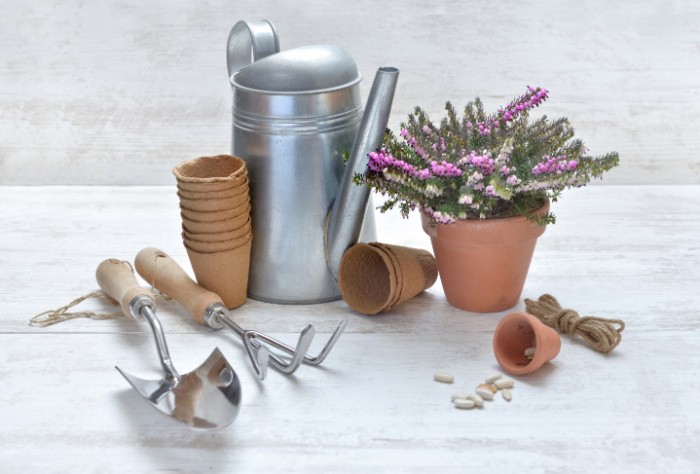

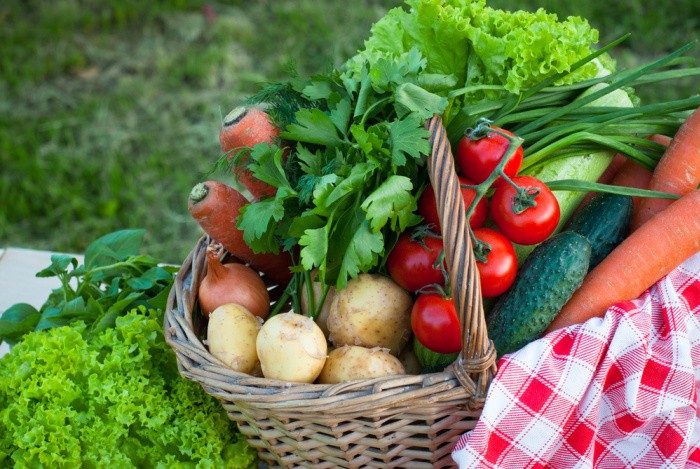
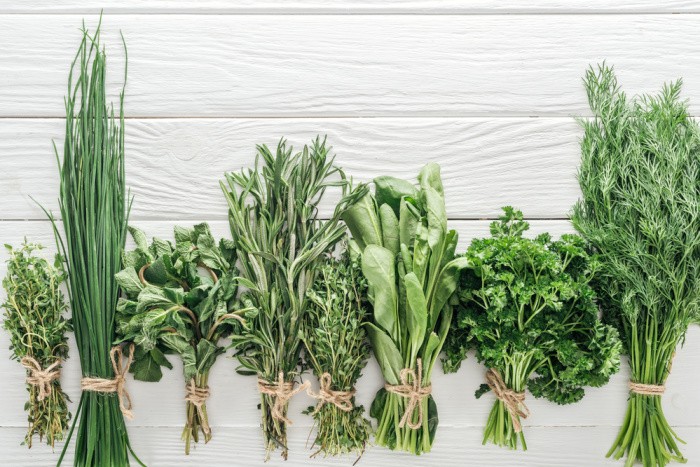
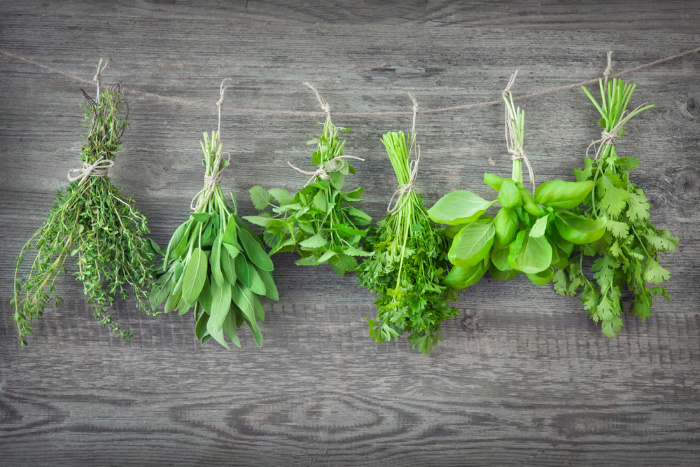
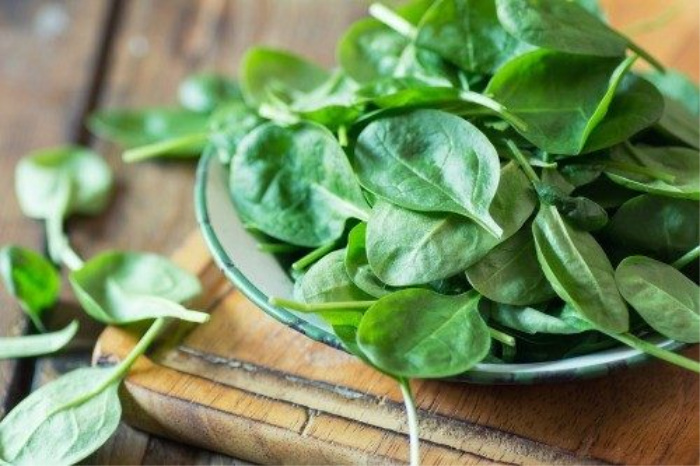
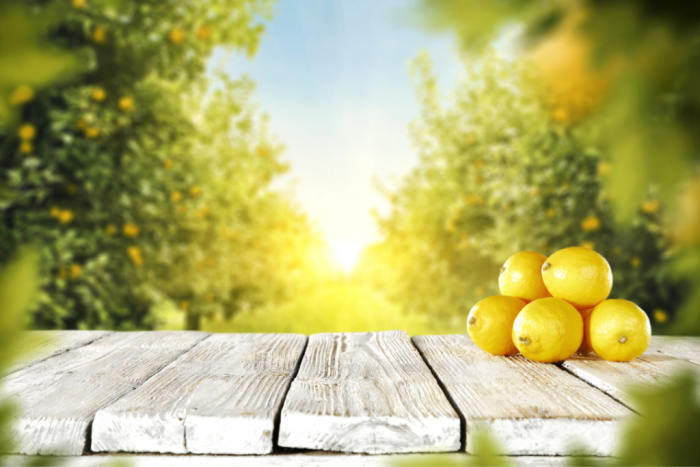
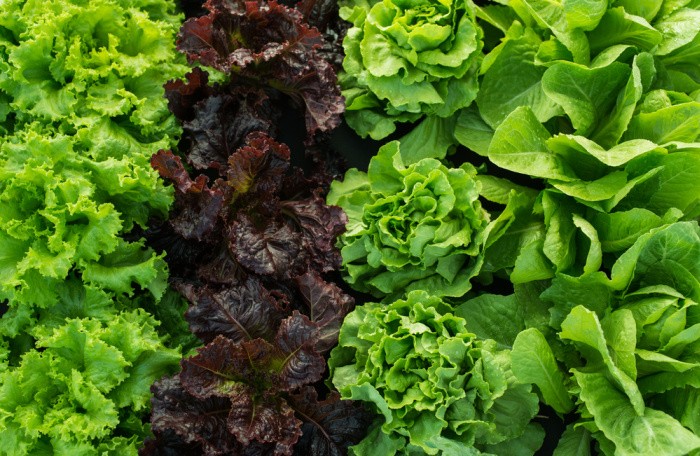













Can you go over how to store seeds, and how long they will last, that is, how many years can I keep the seeds and expect them to grow, thanks.
Hi Daniel, that’s a great question but it’s very hard to predict. Here are my thoughts, how old are the seeds when you purchased them? Are they last years seeds or two years old when purchased? It’s critical we learn to save seeds from the crops we grow. I struggle with the #10 cans of seeds. I have been gardening for over 50 years, and I could not get them to germinate from those cans. Please do not waste your money on them. Start with some good Heirloom seeds and learn to save seeds. If you plant a garden every year, you plant, you harvest, you preserve your bounty, and save the seeds for the next year. I do not believe there is a magic number of years for saving seeds. Linda
Linda,
You absolutely nailed it. Garden seeds are among the smartest investments a Prepper can make. But I recommend people make their own seed bank, since most of the commercially available seed banks I’ve seen are decent for those gardeners East of the Mississippi or South of the Mason Dixon line, but not so great for those of us out West in more arid areas.
I also recommend stocking both heirloom or open pollinated seeds (ie plants that will breed true) AND hybrid seeds. The hybrid seeds will produce reliably in more adverse conditions than the heirlooms (hybrid vigor) though they won’t breed true if you try to save their seeds. It’s important to have both types to insure a decent food supply year in and year out. Here in the Mohave Desert there have been years when heirlooms produced poorly and my hybrids got me through.
Hi Ray, great tip on saving both Hybrid and Heirloom garden seeds. We must save our seeds, we may not be able to get them if things go south. Great comment, Linda
I want to thank you. I do stock up on seeds but reading this I went to my stash and started to think . I know how to save seeds from what I grow.. but I went to the site you recommended to just look on what deals I could find or what I might like to try and if I dont like i can use vegetables/seeds to trade . Oh and yes i order some. Special on there daily deal section.
Hi Renee, I love hearing you are saving your seeds!! I buy seeds on sale as well. I love trying new varieties too. Linda
Our wonderful small town library distributes a wide variety of free veggie and floral seeds every spring, just for the requesting! Pretty amazing especially for those who financially struggle.
Hi Marilynne, I forgot about that, I saw that on the news. Here in Utah, there is only one requirement, you bring back the seeds you save after planting, growing, and preserving. What a blessing to those who want to garden!! Linda
It is easy to save your own seeds, once you have an heirloom variety. We have been doing it for years. My husband starts the plants in a south-facing window in January, then we plant them at the proper time. We have supplemented from a local garden center at times, but it seems we are doing less and less of that.
Hi Janet, you are so right. I really want to discourage people from buying the #10 cans and putting them on their pantry shelf. I love your comment, my friend. Linda
I have some organic non-gmo heirloom seeds saved in my fridge. The package says they are viable for 10+ years. We’ll see!
I also have sprouting and micro greens seeds. I sprout often but they are also good for planting in the garden. So, with saved seeds, sprouting and micro greens, I feel pretty well stocked.
I recall all the peas and beans my Dad planted when I was growing up. He always sprouted the seeds first between damp cloths. Then he could pick out the seeds that were not sprouting/viable. Might be the thing to do with older seeds
Along with seeds, I also have several bags of Epsom salts for the soil. Dad also used this along with manure to condition and feed the soil each year
Hi Leanne, that’s awesome if they are viable for ten years! I love it! I really like using Epsom salts in my garden as well. I need to do some sprouting, I forget about doing that!! great comment, Linda
If you need seed right now,( for fall- winter/greenhouse/covered bed.) and have limited resources.. go to gro store get some tomato’s, the ones on the vine. make sure they are completely ripe before you cut. rescue the seeds out and process./ wash off the gel.. some may already be sprouting – my last one i cut was… don’t know what variety they were but they had a good flavor. i am using these seed for my fall plants, commercially available plants are not available in our area.
Celery, ( leave the center, 2 short and bright leaves.as you peel off the individual stalks to use, look at the bottom and if it does not have roots sticking out-take a sharp stainless knife and lightly scrape it- so fresh base is revealed… sit it in just enough water to cover the base,keep fresh water in it..it will begin to give roots in a few days.. water it with heavy nitrogen fertilizer- after you get it in soil when it is about 14 weeks old place a blanching cover around it for 2-3 weeks. leaving the top exposed.
Hint for celery i buy several stalks at a time. and dehydrate all but the centers..then after the celery is dehydrated- i powder the bigger pcs, for celery powder to use in soups, stews and stir fry’s… it rehydrates quickly to add that special flavor of celery…
.. Onion can be regrown from grocery store …bunching onions or ones that are beginning to sprout… take out the center intact with the roots…peeling away the outside layers, and put the root in a little bit of water… til they grow out a little. then put in a pot and give them the right food…
Hi d, thank you for all these ideas!! I LOVE LOVE LOVE your comment! We all learn from each other. Linda
I would like to know how to store seeds for long term storage. I may have missedit aloong the way there is so much good information.
Thank you,
Jennifer
ztki5@comcast.net
Hi Jennifer, this is a very good question. It all depends on the quality of the seeds you purchase. Please do not buy the #10 cans filled with seeds for your garden. Unless someone can tell me differently, I bought them years ago and none of them sprouted. I bought them to test them, it was a total waste of money. Here’s the deal when you say long-term, that’s tricky. Here again, it depends on the quality. Are they truly Heirloom seeds? Some seeds will be good for 5 years if kept cool and dry. Others are 3-5 years. Some people store their seeds in airtight containers in refrigerators. I would buy the best heirloom seeds and lean to SAVE seeds then you will always have the seeds you need. I hope this help, Linda